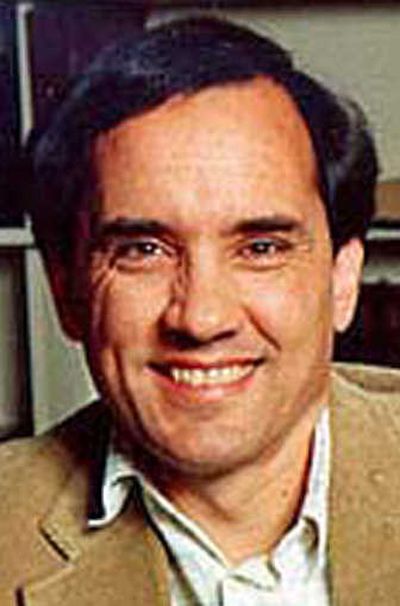Preacher-turned-atheist to headline event

For more than two decades, Dan Barker devoted his life to Jesus.
At 15, he became an evangelist. At 16, he was a choir librarian for a faith healer. By the time he was in his 30s, Barker had received a degree in religion, served as a pastor, worked as a Protestant missionary and used music as a way to spread the Gospel.
Then it all changed – not overnight, but gradually. Little by little, as he read more books and contemplated life and the world, Barker began to “outgrow” his religious beliefs.
In a span of about five years, he declared himself an atheist. “I just lost faith in faith,” he said. “If I had limited myself to Christian authors, I’d still be a Christian today.”
Barker, now the co-president of the Freedom from Religion Foundation, will be in Spokane this weekend as the keynote speaker at the Humanist Focus Banquet. Sponsored by the Humanist Focus Group of the Inland Northwest and the Inland Northwest Freethought Society, the event will feature Barker’s musical compositions, which he will sing and perform on the piano, as well as his views on atheism and his efforts to maintain the separation between church and state.
“I didn’t think I was going to end up an atheist,” Barker explained during a phone interview from his office in Wisconsin. “But my brain got hungry to learn more.”
He started out as a fundamentalist, he said, then started preaching “less hellfire and more love.” Barker moved on to become a moderate then eventually “a more liberal type of believer.” In the end, atheism was the most logical conclusion in his mind.
“I swung all the way across and I dumped out all the bathwater and found there was no baby there,” he explained. In some ways, becoming an atheist or agnostic is similar to a religious conversion, he said, only it’s about “unjoining religion and becoming your own person.”
Barker said it was a position that he was uncomfortable with at first, only because of the mental conditioning he had experienced growing up with Christianity. But like others who have experienced the same journey, he came to believe that one doesn’t need faith in order to do good in the world.
In the same way that believers want to live moral lives and help others, so, too, do freethinkers – only without religion.
“We atheists and agnostics march for civil rights and civil liberties. We want to end hunger and homelessness,” he said. “Most people who don’t believe in God or gods are actually good people. … Most atheists and agnostics have an optimistic view of human nature. We don’t need salvation because we’re not sinners in the first place.”
Locally, membership in the Humanist Focus Group of the Inland Northwest and the Inland Northwest Freethought Society has grown in recent years, according to Ray Ideus, one of the event’s organizers and a former Lutheran pastor- turned-atheist. And many, even devout Christians, want to protect the constitutional principle of the separation of church and state, he said.
As co-president of the Freedom from Religion Foundation, Barker has spent much of his time promoting and educating others about this issue. Recently, the U.S. Supreme Court struck down a lawsuit filed by the FFRF challenging Bush’s faith-based initiatives, which Barker and others assert is unconstitutional because taxpayer money cannot be used to support religion.
“America is a free country – we are free to believe or not to believe,” said Barker, author of several books, including “Just Pretend: A Freethought Book for Children” and “Losing Faith in Faith: From Preacher to Atheist.” “We are free to disagree with each other. What we are not free to do is ask our government to settle the argument. We should not use the government to help or hinder religion. In fact, we would be against the government pushing for atheism.”